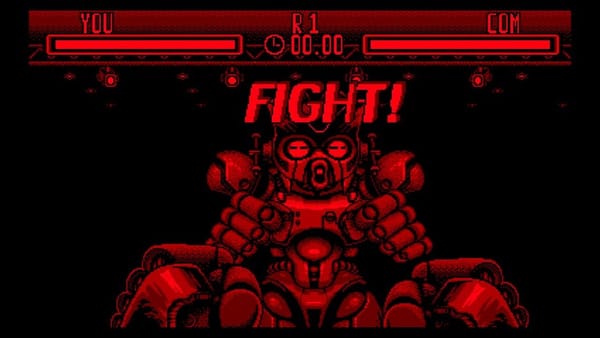#80: Nothing for money
Happy Halo Infinite day! Sort of! What a distinctly weird release for one of the biggest games of 2021. Delayed by a year, then arriving in tranches — its brilliant multiplayer beta, with its absent modes and miserable Battle Pass, landing weeks ahead of the singleplayer campaign, itself shorn of expected features such as co-op, Forge and, it has emerged this week, the ability to replay individual campaign missions. Not for the first time, I am relieved to no longer be in the reviews business. There is an awful lot to think and talk about before you even get down to whether the game is any good or not.
As such I was particularly struck by Jeff Gerstmann’s review for Giant Bomb, which in addition to unpacking the merits of Infinite as a game, thoughtfully muses about the purpose of reviews in Space Year 2021 — particularly one of a game like Infinite, with all its split personalities, its weird structures and business models, its little steps forward and back — and about the role of today’s games media more broadly. I think about this stuff more than is healthy, too; as longtime readers will know, it is in part why I started Hit Points. I like Jeff a lot, and have tremendous respect for what he’s built at Giant Bomb. When I used to have time to listen to a three-hour podcast every week — you know, before kids — Giant Bomb’s was a fixture. But there’s some stuff in here I really don’t agree with. Over to Jeff:
“Video game reviews have meant a lot of things to a lot of people over the years. To me, traditionally, the scored video game review is meant to serve as some sort of helpful advice for players who are on the fence about a particular product. When there was money on the line, I wanted to be there to help. At this point, I've written well over a thousand of these things. [...] Games cost money, I hate to see people waste money on bad games, and me and the people I worked with on the reviews team were the people who held the line in an attempt to keep you from blowing money on bad games.”
Then, after musing on the point of that sort of review when Infinite’s multiplayer is free-to-play, and its singleplayer campaign is on Game Pass, comes this:
“When the games are free, we're not reviewing to help save you money. We're curating to help save you time.”
Hang on a sec. Why are we talking about money?
I realise that Jeff started out over 20 years ago, when the media was the only trusted point of contact between players and developers, and reviews were therefore a reasonable yardstick for people to use when making purchase decisions. But 1,000 reviews later, that is no longer the case — and it has not been the case for, I would suggest, the vast majority of that time. It is certainly not a recent development.
Call me old-fashioned, but I read reviews because I want to read the well-phrased analysis and opinions of an expert. Things that said expert has thought about at some length while playing and writing about the game. I read reviews of games I already know I am going to buy, of games that I have no intention of buying, and of games about which I am merely curious. Sometimes I read reviews of games I’ve never heard of. I am very rarely on the fence about something, to use Jeff’s analogy. I am either already off it one way or the other, or there is no fence at all.
These things are about so much more than fences! Every review of every game — irrespective of its quality, or price, or genre or anything else — can and should inform and entertain me, raising my awareness and deepening my understanding of the medium, the culture, the business or some other wider context that surrounds it. (In a pleasing ironic twist, Jeff’s Halo Infinite review is the perfect example of this.) We have long since moved past the point where money is the most important part of the conversation a reviewer has with their reader, if we were ever there at all.
So no, reviews are not buyer’s guides. Rather, they are the start of the conversation around a game, and neither the fact that those games are sometimes free these days, nor the fact that today’s conversations last so much longer — through patches, live-service updates, community reporting and deeper post-launch criticism — diminishes the role that reviews have to play in it. Quite the opposite, I think. Indeed, I’d argue that reviews are more important than ever in an era where I have instant access to several hundred games through various subscription services, where there’s a new bundle every five minutes and a digital sale every second and a half, and freebies fall like rain. In a world curated by algorithms, we need human beings to be our tastemakers, curators and experts more than ever — whether there’s a price-tag involved or not.
MORE!
- Ubisoft has become the first major publisher to publicly move into NFTs. This was in contention for top story today but, ugh, no thanks. Perhaps we’ll dig into it a bit on Friday. In the meantime: terrible idea, will make a lot of money but I suspect will also have an impact on Ubisoft’s business endeavours elsewhere. Seems to be a lot of pissed-off people out there.
- The Activision staff walkout in solidarity with laid-off staff at Raven Software continued yesterday, with no end in sight.
- Tencent has announced a new publishing label, Level Infinite, focusing on high-quality games with global appeal. Based in Singapore and Amsterdam, it’s presumably at least partly designed to bolster Tencent’s endeavours away from the increasingly watchful eye of Chinese regulators.
- A high court in Germany has ordered Nintendo to issue refunds on eShop preorders right up until release. Currently, the cut-off is seven days before launch.
- There’s no campaign pre-load for Halo Infinite! Given the simultaneous worldwide release that means tens of millions of players will be kicking off 30GB downloads at the same time. Man, this thing really is coming in hot.
- And just as I put this edition to bed, Jason Schreier has done his ‘a big game has released’ thing. The short version: development was a mess and 343 Industries struggled with legacy tech, infighting and high staff turnover, but everything’s okay because the game’s out now, sort of.
That’s it! Since we’ve spent so long today talking about subscriptions, value for money and all the rest, it would be remiss of me not to point out that a Hit Points sub costs just 14p per day, grants access to subscriber-exclusive interviews, and earns you my eternal adoration and respect. Have a grand couple of days, and I shall see you all on Friday, where I expect we’ll be talking about The Game Awards a bit. Hopefully, anyway. I really don’t want to get into the NFT stuff again.





